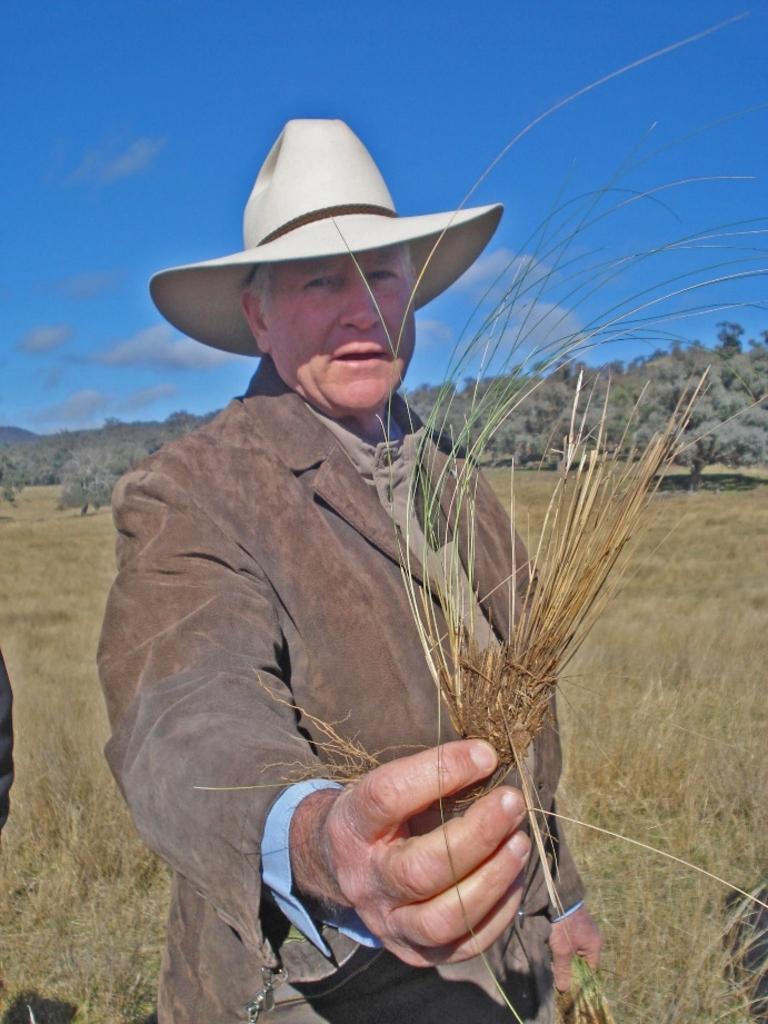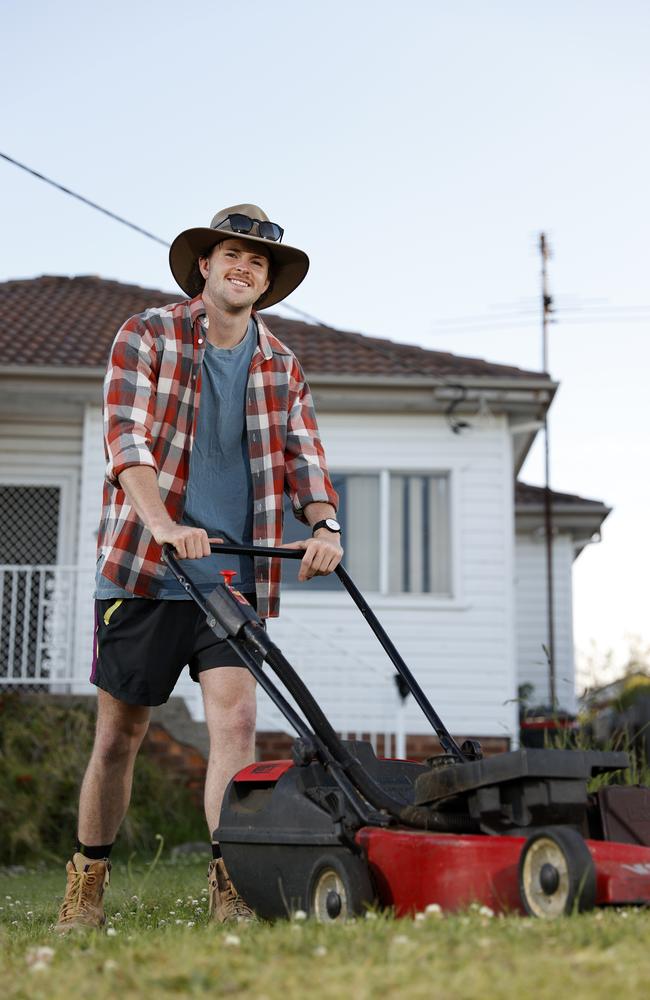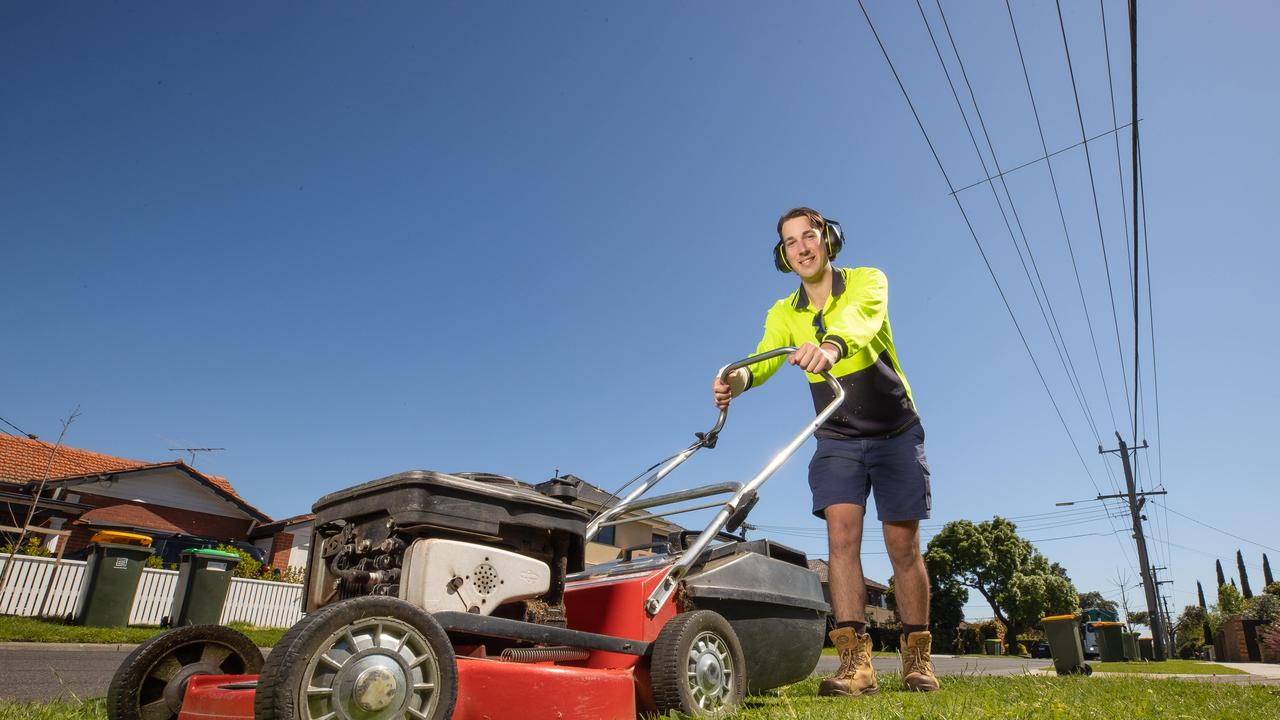Mission Zero: How Aussie lawns could help us get to net zero
Australians mowing their lawns could be the secret weapon in the quest for net zero. This is what a farming expert says we need to do.
Australians mowing their lawns could be the secret weapon in the quest for net zero, with a farming pioneer saying that cutting carbon emissions is literally as easy as watching grass grow.
Agricultural guru Terry McCosker has just received a groundbreaking revelation of how much carbon can be captured in soil which proves both farmers and suburban householders can physically pull carbon out of the air with a few neat tricks for their turf.
For those of us slaving in the burbs, instead of on the land, the solution is almost too easy.
“Mow that lawn longer, don’t shave it,” Mr McCosker said.
“Let it grow up to, and keep it, a couple of inches long rather than half an inch long. That will put more carbon into the soil.”
For 20 years Mr McCosker has been trying to figure out the best way to work grazing properties so that they absorb as much carbon as possible and also produce the best outcomes for stock – plus plenty of cash for carbon credits.
Now the results have blown even his wildest expectations. Quadruple his expectations, to be precise.
“We’ve now worked out how to measure soil carbon accurately – much more accurately than we could even a year ago – and at a lower cost,” he said,
“We’ve done a trial on a place we measured in 2016 and measured again last year and it’s taken us a long time to be able to work out what the change in soil carbon is. But it’s averaged four tonnes of carbon per hectare per annum.
“That, we still think, is nearly too good to be true. It’s four times what we thought we would be able to do. And that was including two years of drought.”

The preliminary findings of research conducted by Mr McCosker’s company Carbon Link are a potential game-changer for Australia’s all-important agricultural sector, which is now beholden to demands by industry powerhouses from McDonald’s to McCain’s for sustainable and renewable produce.
“There will be a time in the future where if farmers are not producing regeneratively, or at the minimum sustainably, they won’t be able to sell their products. And if they’re not doing it renewably or regeneratively they won’t be able to finance what they’re doing,” Mr McCosker said.
“That shift is accelerating like I’ve never seen in this year alone. It’s amazing.”
And it is the big players and their consumers who are driving the change.
“So you’ve got an organisation like McCain’s, whose head office has come out and said by 2030 we want to be buying all our potatoes from regeneratively produced farms.
“You’ve got the big restaurant chains like McDonald’s and so on requiring basic guarantees of sustainable production systems, otherwise they won’t buy the product. There’s more and more of that happening.”
As for the rest of us weekend warriors, Mr McCosker has some simple gardening advice: “Have more greenery, more lawn and less concrete.”
“Go and plant a few fruit trees and things in the backyard. If you’ve got a few trees they’re also going to take carbon dioxide out of the atmosphere,” he said.
“Whatever suits your backyard. Trees are trees, they all absorb carbon.”
There is also a neat little headspin for the next time your kids ask you where trees come from.
“Literally a tree is grown out of the atmosphere,” he said.
“Everything you see around you came out of the air not out of the ground.”
In other words, all plant life draws its strength from the air and ploughs carbon into the ground through its roots.
Just something to think about while you’re watching the grass grow.

LETTING IT GROW LONGER IS A GOOD THING’
Engineering student Joe Stewart, 22, from Port Kembla said he “never knew that just a regular job like mowing the lawns can relate back to the environment.”
“It’s pretty good news really that leaving your lawn to grow a bit longer is a good thing, I love mowing the lawns but will be happy to leave it a week or so longer now,” Mr Stewart said.
“I live in a share house so we share the mowing between us but on a nice sunny afternoon it can be a pretty rewarding job.”
Mr Stewart said he has become more aware recently of everyday tricks he can do to try and live a more sustainable life and play his part in reducing emissions.
“I think I’ve definitely become more and more aware of carbon footprint as I’ve got older and try to do little things to help the environment,” Mr Stewart said.
“Things like trying to walk or ride my pushbike somewhere if I can or buying energy saving light bulbs are easy ways to be more sustainable.”
“I think most people are becoming more environmentally aware, even in my university degree I have noticed there’s been a big focus on sustainability and trying to leave as little footprint as you can.”

‘WE CAN’T BE COMPLACENT’
Coffee salesman Jackson Doyle, 22, said emissions were not front of mind when he mows his lawn, but “it all adds up” when everyone is using fuel-powered appliances.
“What you do by yourself is so small that you don’t usually think about pollution directly,” he said.
“But multiply what you’re doing by the whole population and you can see how it has quite a large impact.”
Mr Doyle said he understood the government needs to find practical ways to help households reduce emissions, but wants them to show more urgency in reaching a zero target.
“We can’t be complacent – this needs to be dealt with very soon before it has a lasting effect.
“If everyone is a bit more mindful of when they use petrol for mowers, blowers, whipper snippers … it will be a pretty useful step even in its own right.”
– Kelsey Hogan, Ed Bourke
More Coverage
Originally published as Mission Zero: How Aussie lawns could help us get to net zero





